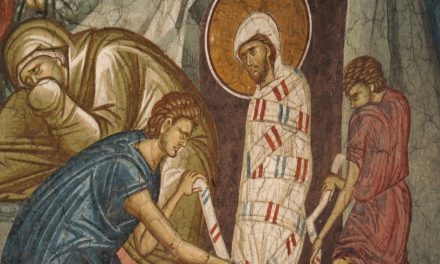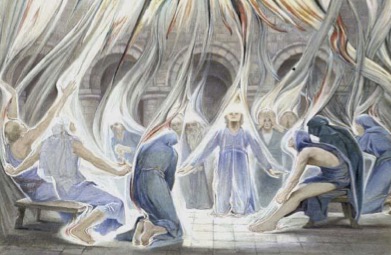28th Sunday in Ordinary Time
Isaiah 25:6-10a
Ps 23:1-3a, 3b-4, 5, 6
Phil 4:12-14, 19-20
Mt 22:1-14
These readings, first of all, emphasize God’s gracious invitation to all people to “live in the house of the Lord” all the days of our lives. In Isaiah, people from all nations shall be gathered at the Lord’s mountain, where God will provide a feast, destroy death, and wipe away every tear. As the psalmist puts it, assuming his experience is representative, they “shall not want.” In his letter to the Philippians, Paul writes that he knows how to live both “in need” and “in abundance,” adding that God provides whatever we “need.” Secondly, reference at the same time is made in these readings to the transformed way of life that should accompany our response to such grace. Says the psalter, “He guides me in right paths for his name’s sake.” And Isaiah writes, “the reproach of his people he will remove”–their new life together should be beyond reproach. Indeed, Paul attributes this new way of life to “him who strengthens” us.
As for the parable of the wedding banquet, homiletics professor Thomas G. Long notes that the author of Matthew’s Gospel “intends this to be read as an allegory, and his first readers would know how to decode the details”: king=God; son=Jesus; marriage feast=the great wedding banquet at the end of the age; slaves=prophets; those invited=Israel; violence=Israel’s rejection of the prophets; destroyed city=fall of Jerusalem in 70 CE; gathering of good and bad=the evangelistic mission of the church; wedding hall=church (Long, Matthew [Louisville: Westminster John Knox, 1997], 246). Because the members of the church for which the author of Matthew’s Gospel was writing possessed a Jewish heritage (they had probably left a synagogue to form a separate Christian group), “Matthew’s readers can recognize their own faces” in this parable, which provides “a symbolic picture of Matthew’s church” (247). That is, they are “the good and the bad” who have all now been invited to gather as a people of God now called church (again, symbolized by the wedding hall).
But what’s the deal with the man who was there who was not wearing a wedding robe? Wasn’t it a last-minute invitation, so why should he be blamed for his inappropriate attire? Isn’t it rather harsh of the king (i.e., God) to have the bouncers toss the guy out? This part of the parable has long bothered me, but I think Long offers some help here by reconnecting with the second point that was noted above about these readings from Isaiah, the Psalm, and Philippians. Long again highlights that this is an allegory, and the “wedding garment” symbolizes the Christian life of discipleship (247). To God’s gracious act of inviting us into this new community, we should respond with awe and wonder–and with “a discernible difference in who we are and how we live” (247). Simply put, worship and ethics should be of a piece. As Long puts it, “God wants everybody at the party, but not everybody wants to come or knows how to behave when they get there” (247).



